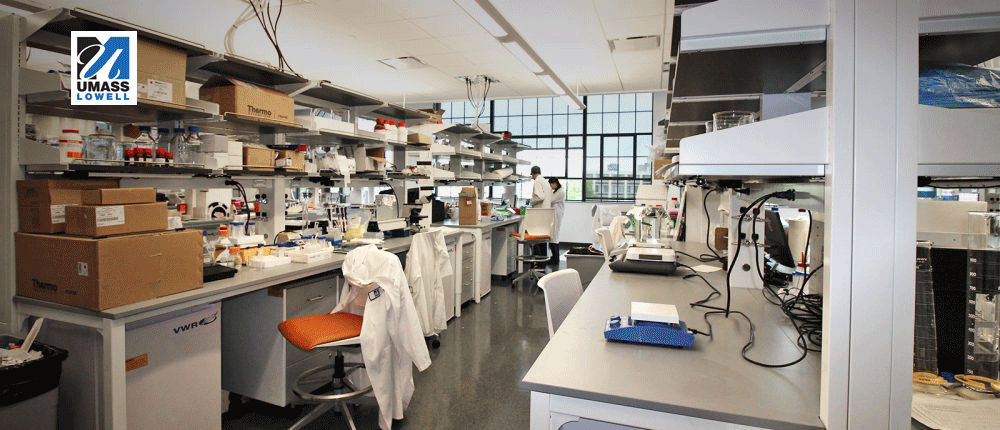Medical Device Entrepreneurs Pitch Ideas

Ruth Cheng, director of strategy and innovation for Smith & Nephew, was one of six judges who questioned competitors at M2D2’s venture contest.
ByDavid Perry
Drawing more than 60 applicants from as far away as Israel, and a crowd that spilled into the hallways, theMassachusetts Medical Device Development Center‘s (M2D2) New Venture Competition was a sure sign of the program’s growth and ingenuity.
The competition, the fourth one held to date, is where innovations in medicine and engineering intersect and fledgling businesses try to find legs in the marketplace.
‘It used to be that we had a hard time getting people to come up from Boston,’ saidSteven Tello, an M2D2 director and the associate vice chancellor for entrepreneurship and economic development. ‘But now that’s not the case. I think people see the companies we’ve worked with have been successful and people have wondered, ‘Let’s see what is happening up there.’ And the Saab building (the Emerging Technologies and Innovation Center) caught people’s attention. When they saw that, they knew Lowell had all the pieces.’
M2D2, a UMass Lowell-UMass Worcester collaboration that helps entrepreneurs advance their ideas for medical device products, offers prototyping and product development help, regulatory and business development assistance as well as lab and office space.
In the venture competition, the pool of 64 applicants was winnowed down to 15 finalists, who then served up four-minute pitches to a panel of six judges, including John Kummailil (’96, plastics engineering), senior manager of corporate engineering for Boston Scientific. At stake is more than $100,000 in in-kind services from sponsors, including legal, business and regulatory support, lab and office space and more. Winners will be announced at the offices of Boston law firm Mintz Levin on April 16.
The pitches addressed a variety of illnesses and conditions, including automated glucose control (by Boston-based Admetsys) for a population increasingly riddled with diabetes, Syracuse-based Fusologics’ accelerated bone formation, Georgia-based LunaMed’s cancer tissue evaluation system and implant technology from the Israeli firm Resorbium.
Rithi Srinivas pitched Boston-based Novopyxis’ system for delivering antibiotics to treat skin and soft tissue infections. She felt well-prepared delivering her pitch to the judges.
‘Part of it is knowing the technology,’ she said later. ‘Knowing it well helps, but I practiced and practiced the presentation. I have given the talk four or five times before.’
For all the expertise and experience that came through in the presentations, all were small companies, with no more than five employees, most with just three.
In the hallway outside the Jacqueline and Edward J. Moloney Jr. Ballroom on the second floor of University Crossing, more than 30 applicants stood alongside posters of their projects. Everything from neuro-modulation for chronic back pain to an intracranial assessment was in play. Guests, each given $1 million in fake money upon entering, doled it out to those with the most deserving pitches. (One will emerge as the People’s Choice winner on April 16).
Laura Indolfi and David Ting of Panther Therapeutics pitched what they described as ‘technologies for revolutionizing the treatment of pancreatic cancer.’
‘The project started two-and-a-half years ago,’ said Indolfi. ‘The past two years have been focused on science and only in the last few months have we been doing pitches parallel with science. It is about getting funding assistance to get to the next steps.’
Ting, a clinician, who runs a lab at MIT, said that no matter how profound the science, it needs to marry with business to go from theory to market.
‘If you have a problem, you could do a lot worse than working with a bunch of MIT engineers to help solve it. But in terms of starting a company, I don’t know how to do that. But I know there are people out there who can.’
And the Moloney Ballroom was where to find them on April 1.
